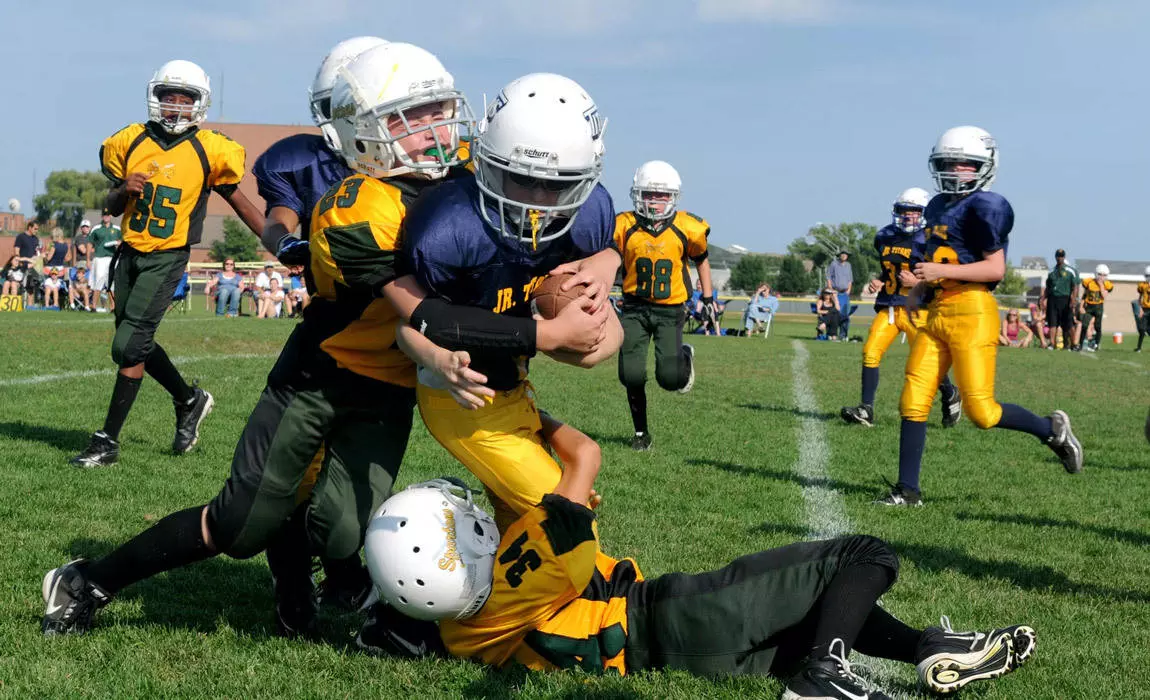Concussions are more than just a sports injury that men get from contact sports like football, boxing, and hockey. They can happen to anyone, at any time and surprisingly among female high school soccer players had a higher number of concussions compared to male football players. In this post, we will take a look at what a man can expect to expect during and after a concussion as well as how to avoid them in the first place as well as the importance of seeking medical attention after a head trauma. If you or someone you know has recently suffered from a traumatic hit to the head that might be a concussion, please consult with a doctor immediately.
What Is A Concussion And How Do They Happen?
A concussion is a head injury that happens when your brain is disrupted by a bump, abrupt jolt, or blow to the head. That means a brutal hit on your body that forces your head to jolt backward, forward, or to the side can cause a concussion.
In most cases, head injuries will result from car collisions, physical abuse, or fall accidents. In addition, you have a higher chance of developing a concussion if you participate in high-impact sports like boxing or football. However, other sports like soccer are also a common source of concussion injuries because of the lack of protective gear covering the head.
Symptoms of Concussions
While concussions are rarely fatal, a blow to the head can cause severe problems to your brain. However, most people recover from a concussion after just a few days and do not suffer any significant symptoms.
Some of the possible concussion symptoms include:
- Increased drowsiness,
- One pupil larger than the other,
- Seizures
- Severe headaches,
- Repeated vomiting,
- Neck pain,
- Slurred speech,
- Weakness or numbness in arms or legs,
- Loss of consciousness lasting longer than 30 seconds
How To Avoid A Concussion?
The best way to avoid a concussion is by preventing head injuries from happening in the first place. That means wearing proper safety gear when playing contact sports and being aware of your surroundings while participating in any physical activity. Additionally it is important to always drive safely, wear your seatbelt at all times, and avoid areas where accidents might be likely - such as snowy roads.
Additionally, for older folks who might have age-related issues related due to mobility, you can work to pad areas like railings, table and counter edges, and other surfaces where someone might easily hit their head if they were to stumble.
What to Expect After a Concussion?
After a concussion, it is not uncommon not to pass out and feel just fine. Nevertheless, feeling okay does not mean you are out of danger.
Sometimes it is normal for people to have trouble remembering what happened before the head injury after a concussion. You may also feel more fatigued than usual. Difficulty concentrating or fulfilling complex tasks, and mood swings, are also some of the things to expect after a concussion.
If you suspect you have a concussion, you need to seek immediate medical attention. A good clinic will have physicians and therapists to carry out a thorough assessment before offering post-concussion therapy to help you recover faster.
Concussion Diagnosis
Concussions are not easy to diagnose unless you experience signs like passing out after a head injury. However, reputable concussion clinics often have comprehensive assessment skills and resources to help establish if you have suffered a concussion.
For example, if you are experiencing severe symptoms such as seizures, the doctor may perform an electroencephalogram to measure your brain waves. The doctor may sometimes request a CT scan or MRI scan to check for severe brain injury. Special eye tests are also likely during a concussion diagnosis to test if any vision changes are linked to brain trauma.
Concussion Treatment
Concussion treatment will depend on the severity of your symptoms. If you have bleeding, swelling, or severe injury in your brain, you may need surgery or other medical procedures.
However, most concussions do not need major medical procedures or surgery. For example, if your concussion is causing headaches, the doctor may recommend painkillers like acetaminophen or ibuprofen.
It is important to note that concussion treatment should start roughly two days after your injury. Early treatment increases the chances of rehabilitating concussion symptoms within the first few weeks of injury.
Resuming Activities After a Concussion
Resuming normal activities after a concussion will depend on your sort of work, as well as the severity of your head injury. You should consult your physician before resuming your activities after a concussion.
However, even if all symptoms have subsided and you are feeling better, you should wait much longer before engaging in strenuous activities. This is because your reaction and thinking times may be slower after a head injury, putting you in danger of further harm.
It could be even worse if you experience a second head injury before fully recovering from the first.
A second concussion can occur before your brain recovers from the first concussion, usually within days or weeks, and might hinder recovery or increase the likelihood of long-term complications. Repeat concussions can cause lifelong brain damage, brain swelling, and death in severe cases.
